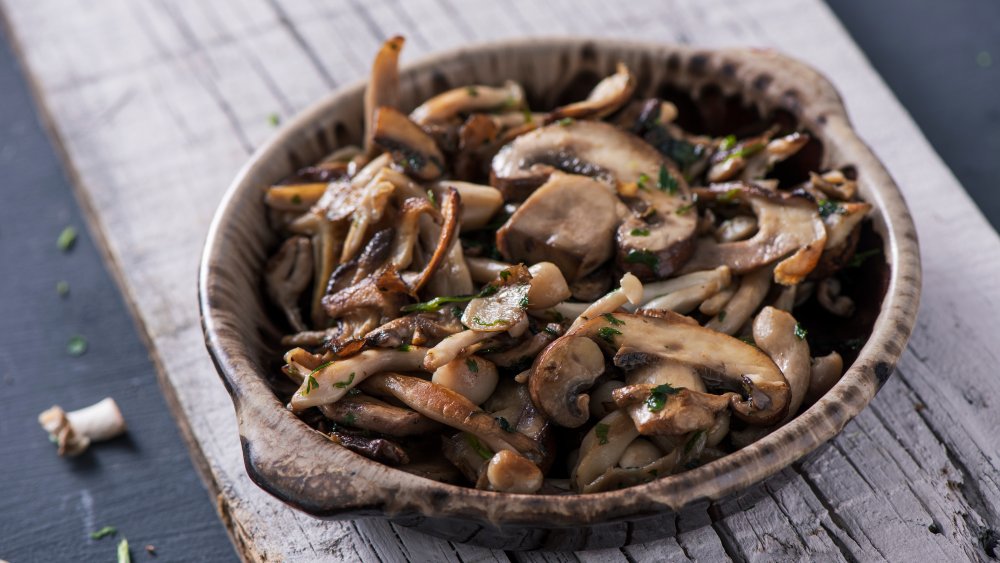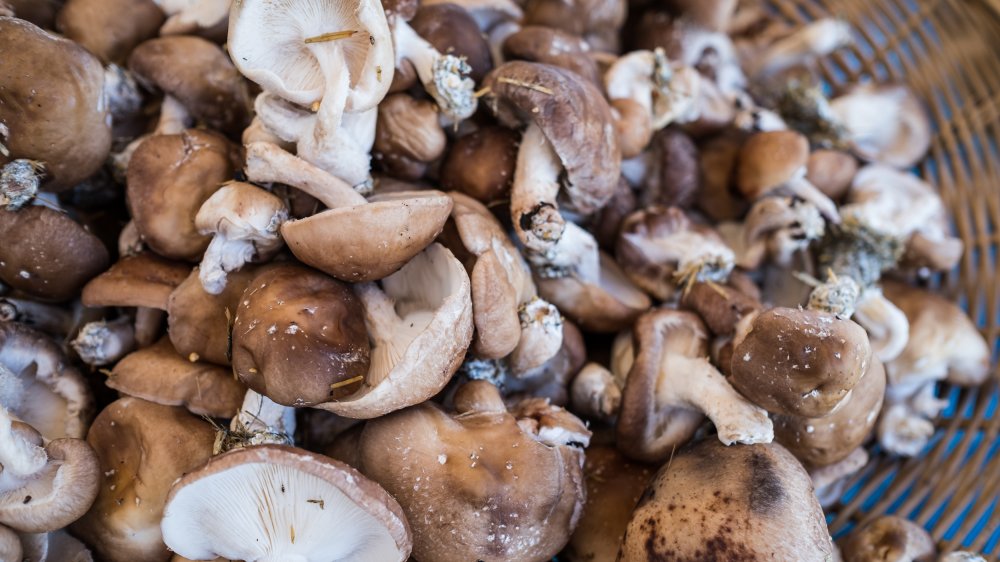This Is The Healthiest Method For Cooking Mushrooms
When we think about healthy options found in the produce section, mushrooms probably aren't on the top of most shoppers' minds. Perhaps this is because they're a fungus rather than a vegetable, or maybe it's because they don't give off the same nutritious vibe that green veggies like broccoli and spinach do. However, mushrooms do have a great deal of nutritious value.
Mushrooms are one of the few non-animal food sources which contain vitamin D, which most people associate instead with exposure to the sun (via BBC). As a result, they can be a great option for vegetarians or vegans wanting to be sure that they're getting the proper amount of vitamin D in their diet. Mushrooms also contain fiber, protein, vitamin B, zinc, and selenium, an antioxidant that supports the immune system. A Japanese study also showed a drop in the likelihood of developing prostate cancer among men who ate mushrooms three times a week or more (via International Journal of Cancer).
The average American eats around three pounds of mushrooms every year, but the amount of these nutrients that your body takes in depends on how the mushrooms are cooked.
The effects of different cooking methods on nutrient content
Scientists at the Mushroom Technological Research Center of La Rioja in Spain carried out a study which found that frying or boiling mushrooms led to extreme loss of protein and antioxidants "due to the leaching of soluble substances in the water or in the oil, which may significantly influence the nutritional value of the final product" (via Food & Wine). On the other hand, cooking the mushrooms on the grill or in the microwave, surprisingly, were the best methods to cook them so that all of the nutrients are retained. Though there are dozens of types of mushrooms used in cuisine, the types studied were white button, shiitake, oyster, and king oyster, because they are the varieties which are most commonly eaten.
What's more is that the research found that if the mushrooms were cooked on the grill or in the microwave, the content of antioxidants and polyphenols (micronutrients from plant-based foods, via Healthline) actually increased in comparison to their raw state. The study also found that if olive oil was used during the grilling process, it could actually improve the antioxidant capacity and would not cause a loss in nutrients (via The Telegraph).

